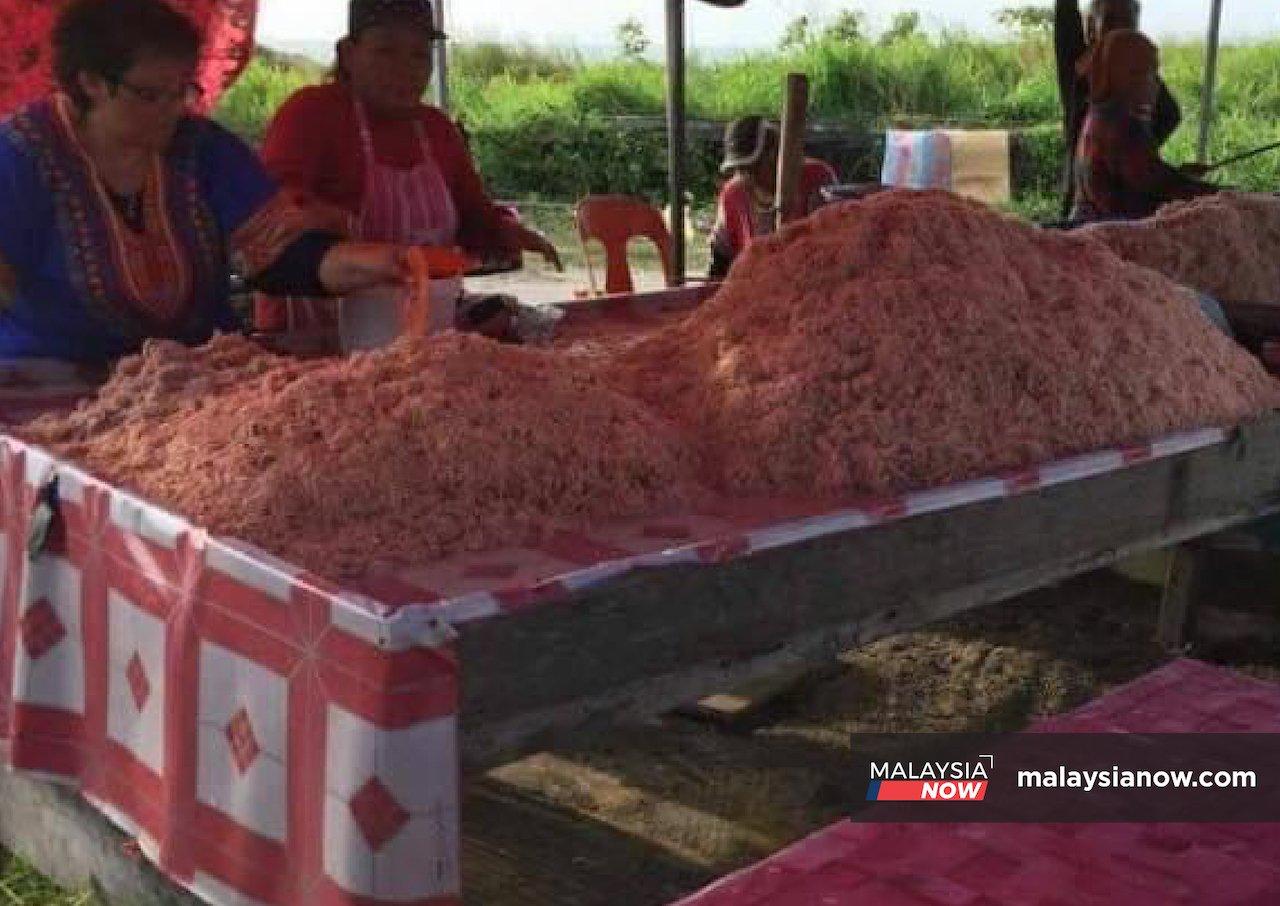Bintulu housewives keep the art of making belacan alive
It is a long and tedious process, but they keep at it, hoping for better days ahead as the country transitions towards the endemic phase.
Outside her house in Kampung Baru, near the centre of Bintulu town, Dayang Dara Awang Ullis squats over a pestle and mortar, pounding dried krill shrimp into a paste.
Beside her, more shrimp is spread out to dry under the hot sun, awaiting their turn under the wooden pestle.
Known primarily as an oil and gas town, Bintulu is also home to a lively fishing community – and krill shrimp season has arrived.
Each season, the housewives of Bintulu wait for the boats to bring in their haul of shrimp, and then they get to work, laying it out to dry for several days before pounding and mixing it into what is known as belacan.

Their work ensures that they have enough stock to be sold throughout the year.
But it is a long and tedious process, especially for those like Dara who make the shrimp paste using traditional methods.
Each morning, she checks the shrimp drying outside her house. Those that are fully dried go into the mortar for pounding.
This process continues for days, all under the hot sun. Eventually, the shrimp turns into a hard dough which she forms into small bricks, ready for consumption.
“Making shrimp paste takes a long time,” Dara told MalaysiaNow.
“To make the best paste, we must use the highest quality shrimp, with no impurities such as sand or small fish, bigger shrimps or dirt.”

Now 61, Dara is an old hand at this. Only fresh ingredients go into her belacan, to preserve the integrity of its taste.
“Krill shrimp must only be dried on sunny days,” she added. “Otherwise, it will not be so good.”
This alone can take up to four days, depending on the weather.
The shrimp must also be fresh and clean, and cannot be mixed with young fish which might slip into the nets due to their small size.
“If this happens, the taste will turn bitter,” Dara said.
The longer the belacan is stored, she added, the better the aroma and texture.
“It can last for up to five years, subject to how you keep it,” she said.

Dara’s belacan-making is a long-time family business. She and her sisters, Dayang Patimah and Dayang Hasnah, have been making and selling shrimp paste for more than 50 years now.
But like many other small businesses, theirs suffered badly with the arrival of the Covid-19 pandemic.
They used to produce about 20kg of belacan each month for local distribution, with more sent to Miri and even as far off as Johor.
The steady demand for their delicious shrimp paste would bring them RM1,000 to RM1,200 a month.
With the announcement of the country’s transition towards the endemic phase, Dara and her sisters hope that things will begin looking up for them again.
“It’s like a blessing for us here,” she said. “We hope that this time, we will be able to earn more.”
Subscribe to our newsletter
To be updated with all the latest news and analyses daily.
